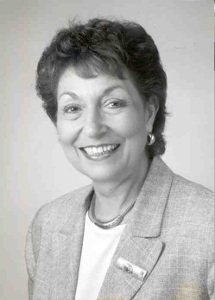Banned Books!
It is an annual event celebrating the freedom to read. Typically held during the last week of September or early in October, it spotlights current and historical attempts to censor books in libraries and schools. It brings together the entire book community — librarians, booksellers, publishers, journalists, teachers, and readers of all types — in shared support of the freedom to seek and to express ideas, even those some consider unorthodox or unpopular.
The books featured during Banned Books Week have all been targeted for removal or restriction in libraries and schools. By focusing on efforts across the country to remove or restrict access to books, Banned Books Week draws national attention to the harms of censorship.
The Olin Library supports the American Library Association's Freedom to Read Statement, and has gathered resources to inform, educate, and inspire you to love books of all kinds and support intellectual freedom.
Banned Books vs. Challenges
What does it mean when books are being banned or challenged today?
- A challenge is an attempt to remove or restrict materials, based upon the objections of a person or group.
- A banning is the complete removal of those materials.
While books have been and continue to be banned, part of the Banned Books Week celebration is the fact that, in a majority of cases, the books have remained available. This happens only thanks to the efforts of librarians, teachers, students, and community members who stand up and speak out for the freedom to read.
-
Brooklyn Public Library - Books UnbannedIndividuals ages 13-21 can apply for a free Brooklyn Public Library eCard which provides access to their full eBook collection as well as their databases. New York residency is not required.
-
LA County Library - Books UnbannedIf you are a resident of California and between the ages of 13-18, you can apply for a free library card which provides access to their entire eBook and audiobook collection.
-
Seattle Public Library - Books UnbannedIndividuals ages 13-26 living anywhere in the United States can apply for a free library card to access Seattle Public Library's entire collection of eBooks and audiobooks.
-
Top 10 Most Challenged Books by ALAThe Top 10 lists are only a snapshot of book challenges. Surveys indicate that 82-97% of book challenges – documented requests to remove materials from schools or libraries – remain unreported and receive no media.
History
The following is from the American Libraries Magazine article 50 Years of Intellectual Freedom, written by OIF staff celebrating the office’s anniversary:
"Banned Books Week was launched in the 1980s, a time of increased challenges, organized protests, and the Island Trees School District v. Pico (1982) Supreme Court case, which ruled that school officials can’t ban books in libraries simply because of their content.
Banned books were showcased at the 1982 American Booksellers Association (ABA) BookExpo America trade show in Anaheim, California. At the entrance to the convention center towered large, padlocked metal cages, with some 500 challenged books stacked inside and a large overhead sign cautioning that some people considered these books dangerous.

Drawing on the success of the exhibit, ABA invited OIF Director Judith Krug to join a new initiative called Banned Books Week, along with the National Association of College Stores. The three organizations scrambled to put something together by the September show date and ended up distributing a news release and a publicity kit, hoping that with their combined membership of 50,000 people, they could continue to spark a conversation about banned books.
The initiative took off. Institutions and stores hosted read-outs, and window displays morphed into literary graveyards or mysterious collections of brown-bagged books. Major news outlets such as PBS and the New York Times covered the event, and mayors and governors issued proclamations affirming the week.
ALA is currently part of a national coalition to promote Banned Books Week, along with 14 other contributors and sponsors. Krug led the Banned Books Week efforts as OIF director until her unexpected death in 2009. Her legacy lives on in the Freedom to Read Foundation’s Judith F. Krug Memorial Fund, a grant awarded to nonprofits to host Banned Books Week events.
Today, Banned Books Week coverage by mainstream media reaches an estimated 2.8 billion readers, and more than 90,000 publishing industry and library subscribers. The Banned Books page remains one of the top two most popular pages on the ALA website."
What is the ALA Office For Intellectual Freedom?
The American Library Association (ALA) condemns censorship and works to ensure free access to information.
Every year, the Office for Intellectual Freedom (OIF) compiles a list of the Top 10 Most Challenged Books in order to inform the public about censorship in libraries and schools. The lists are based on information from media stories and voluntary reports sent to OIF from communities across the U.S.